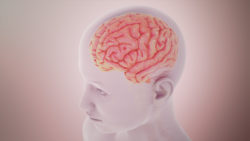Borderline personality disorder is a type of mental health disorder that is characterised by a pattern of varying moods, poor self-image and odd behaviour. It impacts the way one views oneself and others and hence, causes difficulty functioning in everyday life. This is the most commonly recognised personality disorder. According to estimates, around 1.6% to 5.9% of the adult population in the U.S. has borderline personality disorder and nearly 75% of them are women.

Signs and Symptoms
People with borderline personality disorder tend to experience intense episodes of anger, anxiety and depression which could last from a few hours to a few days. The symptoms range from mild to severe. Symptoms can be triggered by ordinary events. Besides mood swings, they also experience emotional instability, disturbed patterns of thinking and perception, impulsive behaviour and intense but unstable relationships with others.
Causes
Research suggests that genetics and brain structure and function could be the main cause of borderline personality disorder. Other factors such as environment, culture and social factors play an important role in increasing the risk for developing borderline personality disorder. Traumatic life events during childhood are largely associated with developing this mental health disorder.
Treatment
When people with borderline personality disorder do not receive the adequate treatment, they are more prone to develop other chronic medical or mental illnesses.They are also less likely to make healthy life choices. The treatment that is used is mainly psychotherapy combined with medication. The purpose of psychotherapy is to help one focus on his/her current ability to function, learn to manage the emotions that make one feel uncomfortable, reduce impulsiveness and, work on improving relationships. Medications may help with symptoms such as depression, impulsiveness, aggression, or anxiety. Medication includes antidepressants, antipsychotics, and mood stabilizing drugs.
With the right treatment and over a period of time, many people suffering from borderline personality disorder recover and are able to lead a normal lifestyle.
Disclaimer: The information in no way constitutes, or should be construed as medical advice. Nor is the above article an endorsement of any research findings discussed in the article an endorsement for any of the source publications.
References:
- Borderline Personality Disorder Signs and Symptoms
- Borderline Personality Disorder Symptoms
- A Guide to Spotting the Signs of Borderline Personality Disorder
- Causes of BPD

Depression, Anxiety and Cognitive Impairment: Psychological effects of screen overuse
When you think about how to prevent depression from taking up residence in your life, you probably don’t give your cell phone much thought. After all, it’s how you stay “connected” so that must be a good thing, right? Read More..

Placebo Effect: Useless or Mindful?
Post so many years of reflexively treating patients through operations, surgeons have now discovered that most bleeding trauma patients fare best when left to heal without surgery. Rigorous trials on appendicitis too have now shown that the ‘surgical emergency’ often heals with antibiotics. Read More..








